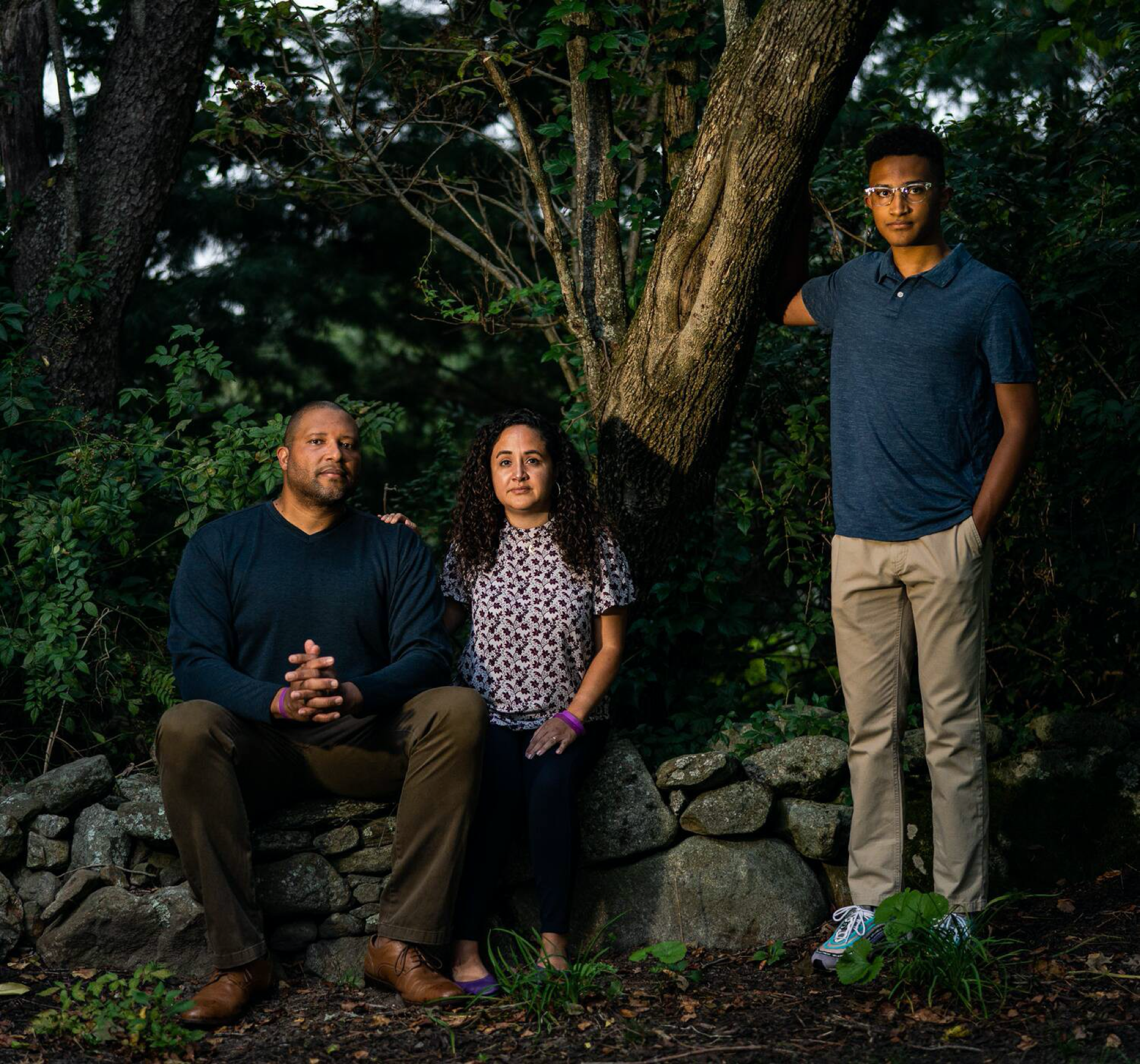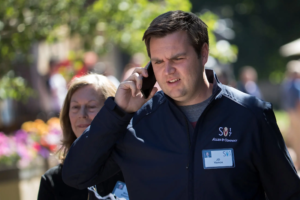The teen was sitting on his living room couch watching another episode of “The Office” when the email popped up on his cellphone. Isaiah Marquez-Greene skimmed past the opening two paragraphs until, at the third, he paused: “This decision to open campus …”
He was thrilled. Four months into the pandemic, Isaiah, 16, longed to play hockey, to see his friends, to return for his sophomore year to the Connecticut boarding school he had worked so hard to get into. Maybe this news meant all those things would happen, he thought for a moment, before the reality of who he is came back to him.
Millions of parents had begun to worry by that July afternoon about schools reopening in the fall, but many found comfort in what they knew of the novel coronavirus. Most children who got sick would be fine. Seldom would they be hospitalized. Rarely — in only the worst cases — would they die. But Isaiah understood how little solace that knowledge offered his parents. They knew the worst could happen.
On a cold winter morning in 2012, Isaiah had cowered in a third-grade classroom at Sandy Hook Elementary in Newtown, Conn., listening to the gunshots that were ending the lives of six staff members and 20 first-graders, including his sister, Ana Grace. He was 8. She was 6.
“I don’t want to be an only child,” he told his mom and dad that December night after they explained to him Ana was gone. But that’s what he had become: their only surviving child.
Now, eight years after the massacre that shattered his family and devastated the country, another threat — the deadliest pandemic in a century — had arrived on America’s campuses. On the living room couch, just down the hall from a collection of his sister’s framed portraits, Isaiah had trouble believing his parents could bear to send him back.
He closed the email and checked Snapchat. “I’m going,” all of his elated classmates were declaring in a group thread, so he messaged his roommate, who told him the same thing.
Am I going to be the only one who doesn’t go? Isaiah wondered at the same time his mom, Nelba Marquez-Greene, was reading the email in her office upstairs.
She was shocked. Nelba had assumed the campus would remain closed and had spent weeks considering how to help her son through virtual classes in the fall. It was so unfair, she thought at the time, but at least he would be safe with them, at home. Now she didn’t know what to think.
Nelba, a marriage and family therapist, had struggled at first with the idea of letting her son leave for boarding school a year earlier, but she and her husband, Jimmy Greene, respected Isaiah and worked hard never to let their trauma or fear dictate the way they raised him. He wanted to go there and earned it, receiving a six-figure scholarship that covered the tuition their middle-class family never could have afforded.
Then came the virus, shutdowns, soaring death tolls and suddenly, amid all of it, a torturous dilemma. She thought about the other parents whose children had also lived through school shootings. There were tens of thousands of those kids, and though most didn’t lose a sibling, they had all learned that danger could reach them anywhere, even in a classroom.
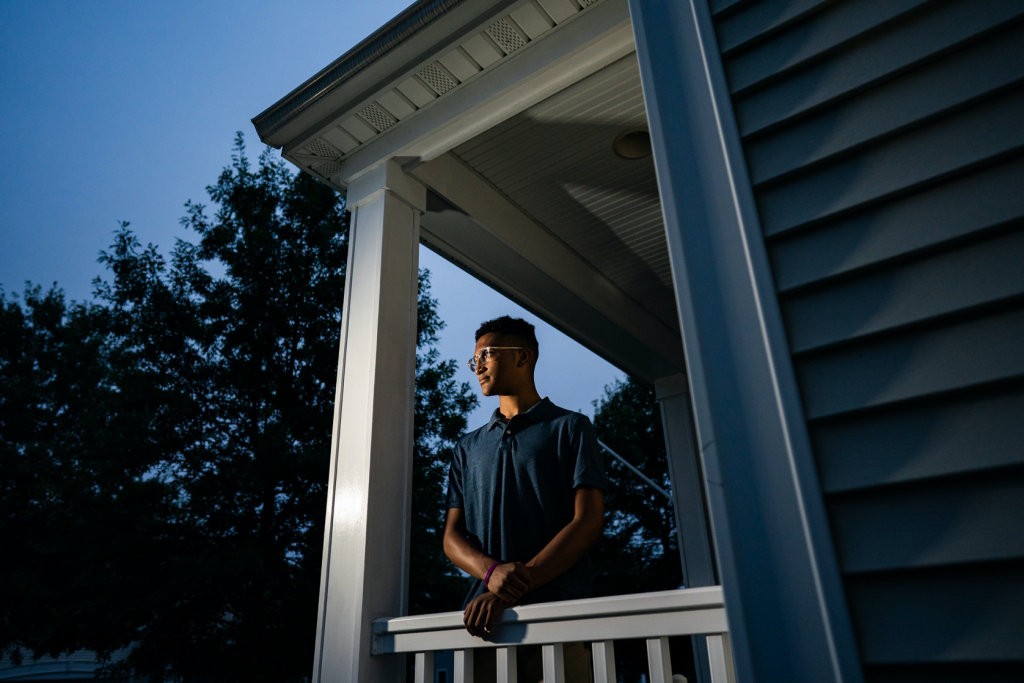
She thought back to the summer of 2012, sitting in an office with Dawn Hochsprung, Sandy Hook’s principal, just before their family moved to Newtown.
“Will my kids be safe here?” her husband had asked, not because he feared that anyone would shoot them but because Jimmy, who is Black, and Nelba, who is Puerto Rican, suspected their children would be among the school’s only students of color. Hochsprung assured them she would do all she could to protect their girl and boy, and the principal died seven months later trying to keep her promise.
Downstairs, Isaiah heard his mom call him.
“Did you read the email?” she asked.
“Of course,” he said.
Had he talked to his friends?
“They’re all going,” he told her, so Nelba forced herself to say it would be his choice. She trusted him, she said, to be smart and weigh the danger of going back, but Isaiah could see the fear in her eyes.
There’s no way she’ll let me go.
That afternoon, Nelba took a long drive, stopping at the cemetery where her daughter was buried. She stood in front of the heart-shaped gravestone.
Nelba called Ana her “caramel princess.” She had round cheeks and dark, curly hair, and she didn’t walk from room to room so much as dance. She liked to wear flowers in her hair and paint her mom’s nails purple, Ana’s favorite color. The two of them were a lot alike: bold but whimsical, headstrong but compassionate. “Don’t let them suck your fun circuits dry, Mom,” she told Nelba after a tough day at work. Her mother posted Ana’s advice on Facebook one week before the shooting.
At the cemetery, Nelba looked down. They always thought of their family as a band, so in front of the gravestone were four tin frogs, each playing an instrument. Ana’s was the smallest. She would have been 14.
“It was enough to lose you,” Nelba told her daughter, as she thought of her son. “I can’t believe I have to do this now.”
Isaiah could sense his mother’s anxiety, but he didn’t bring it up. His school — The Post agreed not to name it or identify their town because of repeated threats against Sandy Hook families — wasn’t scheduled to reopen for two more months. Maybe the virus would recede by then, Isaiah thought. He prayed for everything to work out.
Nelba was praying, too, but couldn’t sleep much that night or the next or the one after, finally messaging a friend who is a school nurse.
“I have one child left,” she wrote at 11:24 p.m. “What should we do about school?”
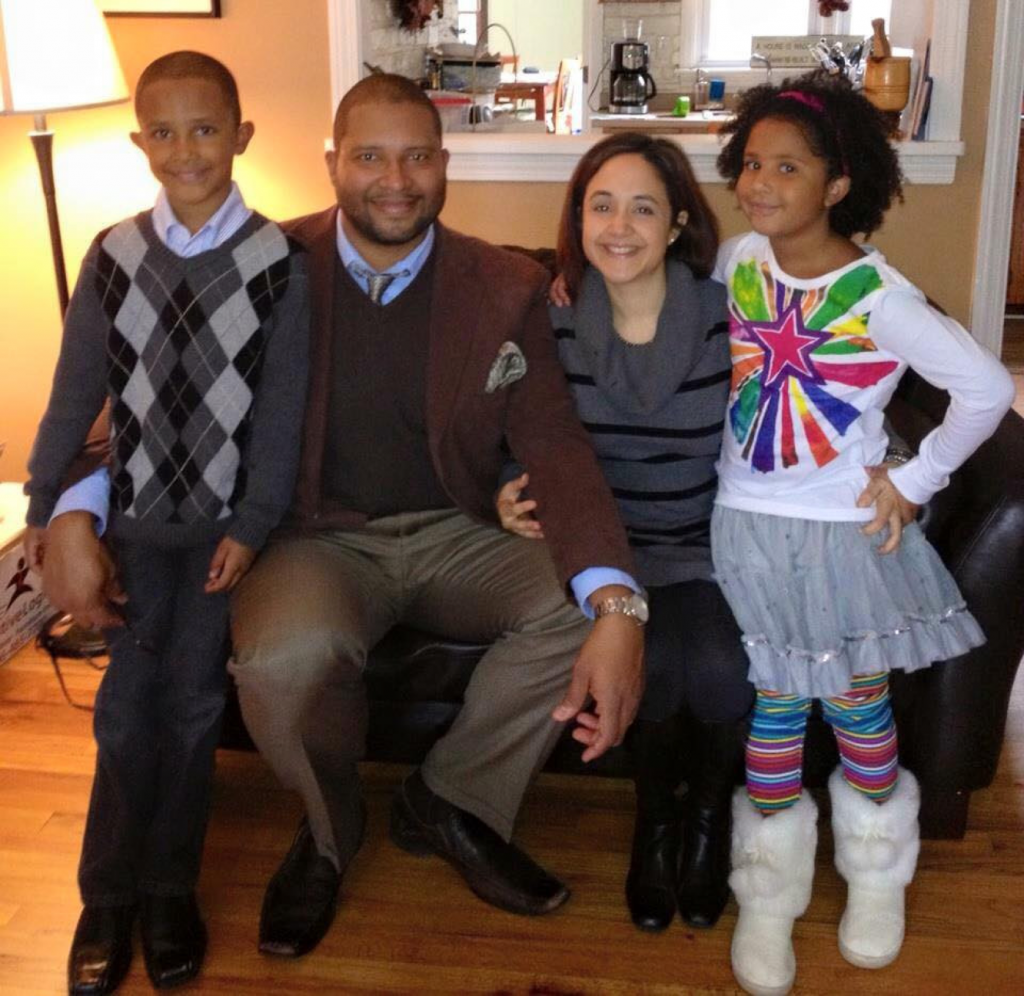
‘Isaiah’s rising’
Just past dawn, Isaiah stepped out onto the rink, alone. Armored in 17 pieces of goalie gear, he glided across the ice in wide circles, warming up as he peered through his weathered white helmet’s wire cage. The teenager had woken up at 6 that summer morning, riding with his dad more than 30 miles for a 45-minute practice to prepare for a season that might never come. The one-on-one sessions with a coach, inside a frigid arena beside a coronavirus testing site, were the only indoor activity away from their house that his parents had allowed. They knew how much he needed it.
He’d learned to play hockey as a second-grader in Winnipeg, Manitoba, where his dad, a world-renowned saxophonist, had taken a teaching job at a university. Ana would watch Isaiah from the bleachers, coloring as he wobbled across the ice.
A year later, because of her death and all the others, Newtown families were inundated with free tickets to theme parks, Yankees games and Broadway shows. Isaiah, who suffered chills for weeks from shock, didn’t want to do any of it, until the Los Angeles Kings asked if a Sandy Hook family of hockey fans would want to help the team raise its championship banner.
In California, Kings players brought the Stanley Cup to the family’s hotel room and surprised Isaiah. At the game, when he looked up and spotted his face on the Jumbotron, Isaiah stuck his tongue out, then grinned.
“Mom, I’ve been planning that,” he told her later, and that’s when she knew at least some piece of her son’s spirit remained.
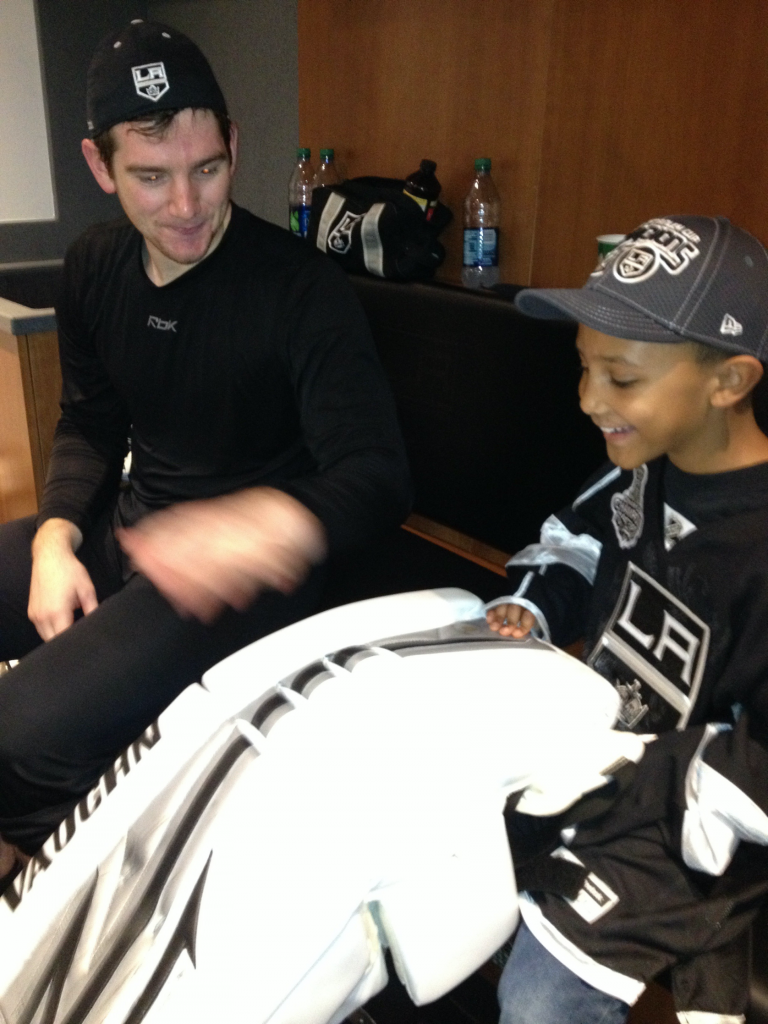
In the locker room, the Kings goalie, Jonathan Quick, a Connecticut native, sat next to Isaiah, helping him try on three-foot leg pads that came up to the boy’s chest.
“Coooool,” Isaiah said.
He fell hard that night for a sport that, five years later, led him to ask his parents if he could switch to boarding school because it would give him a better chance at playing college hockey. They supported him, but for Nelba, it didn’t feel real until he got the scholarship.
Oh my God. He’s leaving , she thought, recalling how hard it had been to let him go back to school a month after the shooting. Isaiah stopped taking the bus so he wouldn’t have to ride without his sister, and Nelba stopped walking inside at pickup so she wouldn’t have to see the first-grade girls line up to go home.
When the day came last year for her and Jimmy to drop Isaiah off at his new campus, though, what she felt was joy, not agony. As he walked away from them, toward his dorm, they took a photo.
“We put Ana’s body in a coffin in the ground. This is not that day. We already did the hardest day,” she wrote on Facebook. “If we didn’t die at Ana’s burial we won’t die at Isaiah’s rising.”

He appreciated his mom and dad’s effort not to burden him with their anxieties, but he had also accepted that his family would never be like everyone else’s. No one on his floor got more calls from their parents than he did, and Isaiah liked to tease Nelba and Jimmy about that, but he never told them to stop; he knew why they needed to hear his voice. He had friends who drank and took drugs, but Isaiah didn’t, in part, because of his parents. He couldn’t take risks that might cause them more pain.
Isaiah had overheard adults talk about how normal he seemed. He was an A student with a subdued self-confidence and a wry, but never caustic, sense of humor. He seldom panicked, especially on the ice, where he embraced the pressure of protecting his team’s goal. He had a gift for music (drums, piano, saxophone), though he intended to major in sports management in college. As an athlete, he always wanted to win but seldom celebrated with more than fist bumps.
At a lean 6-foot-1, he wore Jordan sneakers and trendy, clear-framed glasses over his dark eyes. He loved Jesus, as did his parents, and when pressed to describe himself, he chose “kind.” He had an Instagram account but didn’t post on it, content to forgo the attention most teenagers craved. He was one of the only students of color at every school he’d attended, though Isaiah said he didn’t mind. He had learned at an early age to navigate worlds that were Whiter and wealthier than his own.
He cherished his memories of Ana — the hugs she insisted on giving him, even when he resisted, and the hymns she belted out as he pecked at the piano — but he refused to exploit her loss, even in personal essays he wrote for his application to a school that accepted just 1 in 10 candidates.
“I didn’t want to be the kid who got into school because of that,” said Isaiah, who at 13 had privately detailed how much her death haunted him.
“If a child doesn’t talk about what happened and seems like they’re ‘fine,’ know that they’re not,” he wrote then. “We are always thinking about what happened.”
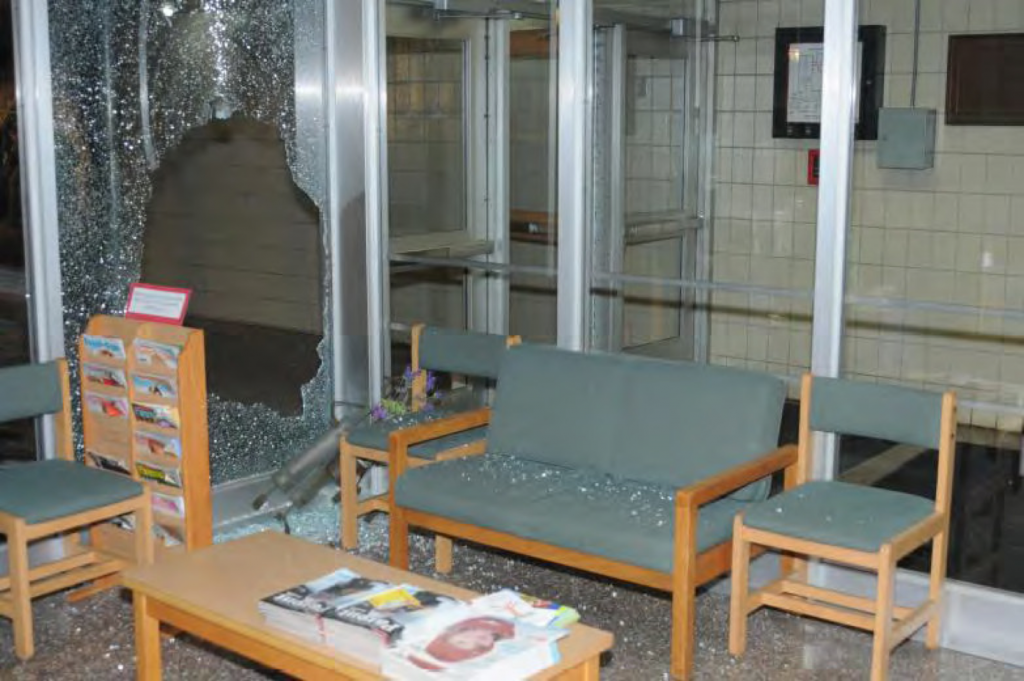
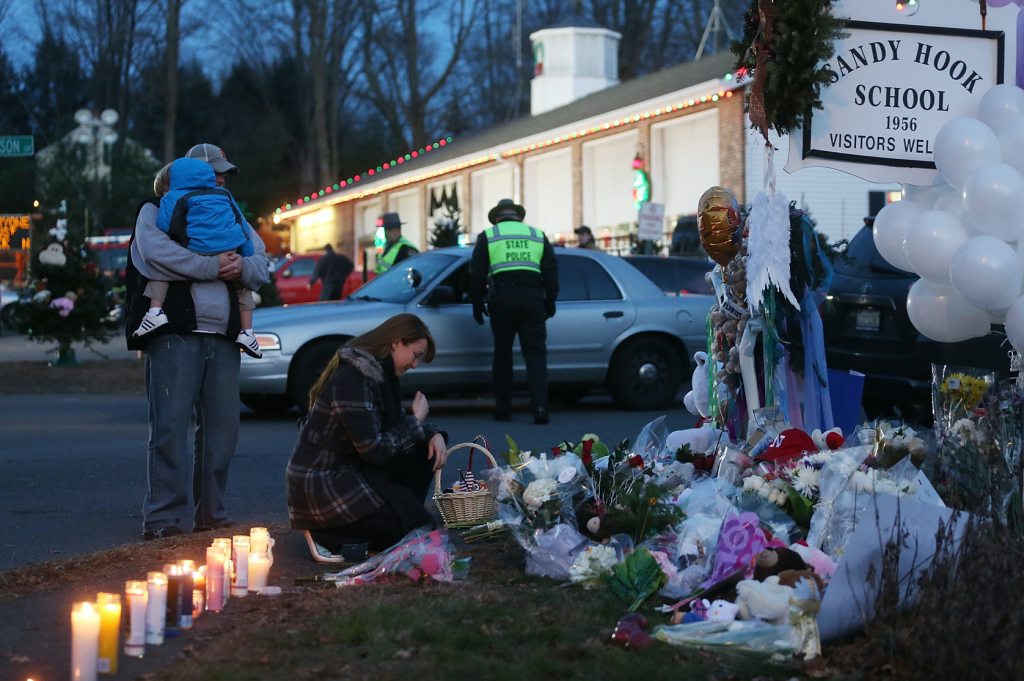
A few weeks into his freshman year, he was hanging out in a dorm room when a friend asked where he lived.
“I’m from Newtown,” he said.
Another teen asked if he had gone to Sandy Hook.
“Yeah,” Isaiah replied.
“Did you know anyone that died?”
“My sister,” he said, and the room went quiet.
By then, Isaiah had accepted that “12/14,” as survivors call it, would always follow him, even at an affluent private school far from Newtown. During a welcome banquet for parents, a member of the bar staff gasped when he saw Isaiah’s mom.
“Are you okay?” Nelba asked.
He told her he had worked as a caterer at her daughter’s homegoing reception.
“I think of you and your family every day,” he said.
None of them resented those encounters, though. They wanted people to remember Ana. It was why Jimmy dedicated his acclaimed 2014 album, “Beautiful Life,” to his daughter. It was why Nelba created the Ana Grace Project, a foundation to aid traumatized children, and why she became a writer and activist fighting to reform the way America supports grieving families. It was why, four months after the shooting, their son gave President Obama a purple bracelet with his sister’s name on it, just the like one Isaiah has worn nearly every hour of every day since.
He did hope his dorm room admission wouldn’t define him, and it didn’t. He was, instead, the smart, funny kid who was good at Spanish and saxophone and who other kids asked to give them skating lessons the next time the pond froze. He flourished his freshman year, even attending class for the first time on the shooting’s anniversary.
His parents still saw him most weeks, usually for hockey games but sometimes because he needed more deodorant or toothpaste. The visits gave him the chance to celebrate their good news, too: his dad’s upcoming new album, set to debut the day before Ana’s birthday in April 2020, and People magazine naming his mother one of the “Women Changing the World in 2019.” Their family was in such a good place that they had even started making plans to leave the cramped home in Newtown where Ana last lived. They at last felt ready.
“I am thankful for surviving Ana’s execution. That will always be a miracle. Now I’d like to thrive,” Nelba posted in late December. “Let’s thrive in 2020.”
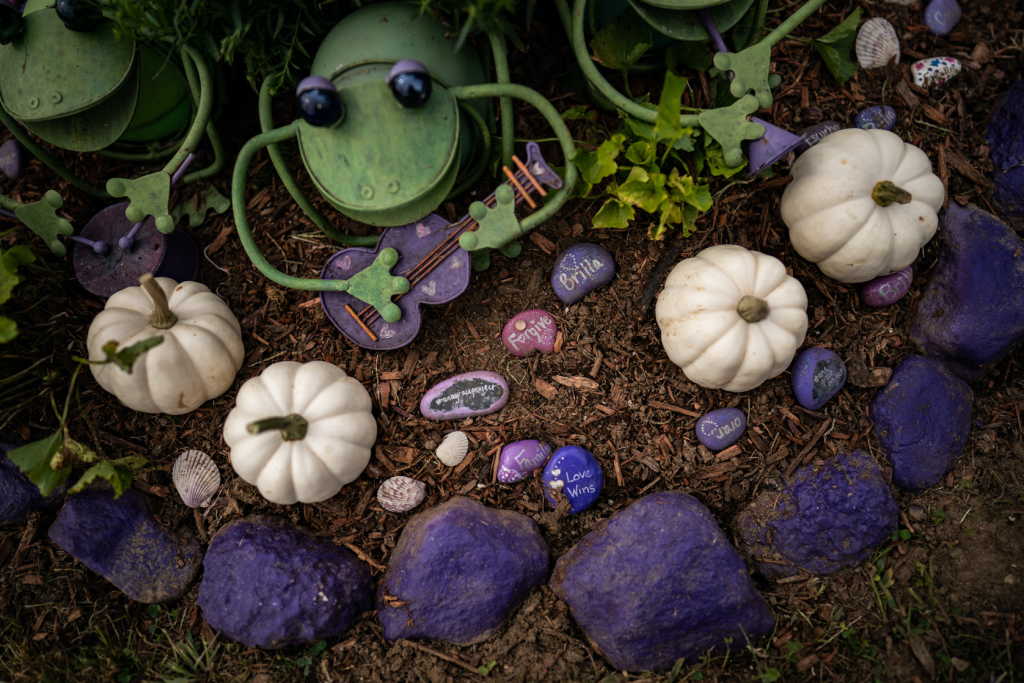
‘Really tense’
Isaiah inched up to the stop sign, his hands at 10 and 2 on the steering wheel. He looked both directions once, then twice, then a third time before pulling out and pressing the gas.
“Main-road driving,” Nelba said from the passenger seat. “Do you feel good?”
“Yeah, why are you asking me?” he responded. “You seem really tense.”
“My son is driving ,” she said. “I’m trying not to be tense.”
She was anyway, but not just because of the driving. His school was reopening in less than a month, and with each passing day, her worries mounted. She’d read how disproportionately Black and Brown children were being hospitalized, or dying, because of covid-19. What if her son, who was one of them, forgot to wear his mask in the wrong place at the wrong moment? What if he got sick, and he happened to be one of those otherwise healthy kids inexplicably vulnerable to this virus?
The notion of thriving felt fanciful now.
At another stop sign, Isaiah glanced right as a truck to his left popped out from behind a blind curve and sped past.
“Did you see that car?” she asked.
“I did, that’s why I was looking there,” he said, but his mom was unconvinced.
“Because that car really scared me.”
“Yeah, I could tell.”
“That’s why you have to ease out and look 101 times,” she said. “Even when you think you have looked enough.”
Three minutes later, after a long stretch of quiet, she brought it up again.
“A bunch of driving is definitely about you making good choices, but there is an equal amount, if not more, that is kind of compensating for when other people make really poor choices. Like when they’re distracted, or they’ve been drinking, or, you know, somebody makes a foolish decision.”
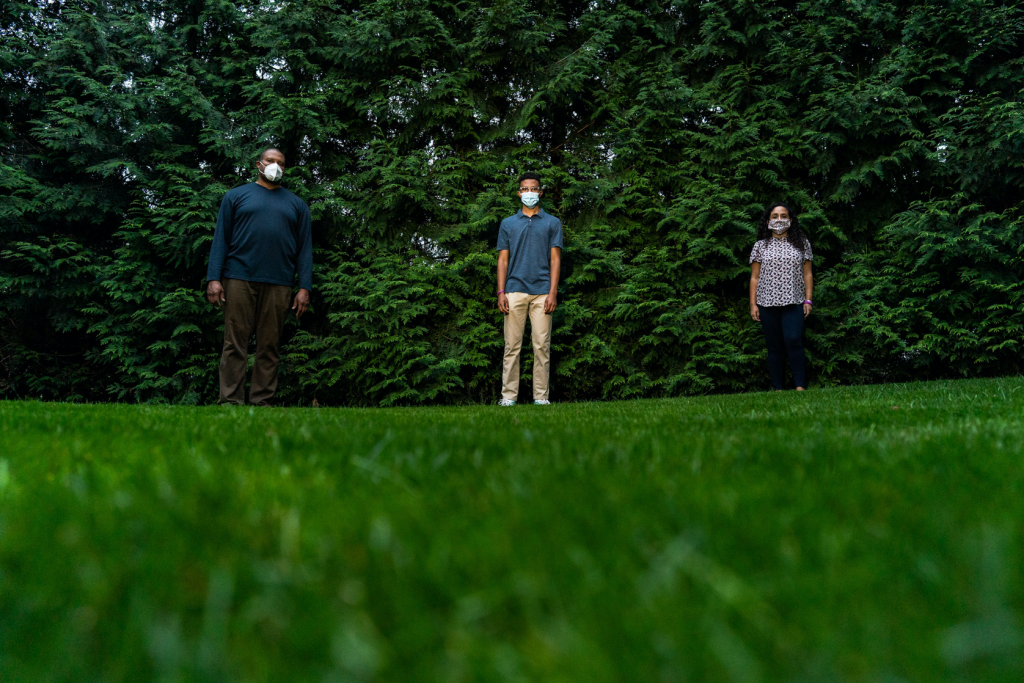
For months, she and Jimmy, a big man with asthma, had tried to protect their family from the foolish decisions so many people were making. Isaiah had come home for spring break in March, unaware at the time that he would finish his freshman year on a laptop. His first weekend back, local parents organized a football game — “#letthemplay,” they said — and he wanted to go with some friends. Nelba and Jimmy told him they didn’t think he should.
Isaiah was disappointed, and a little irritated, but he didn’t object then, or later when he couldn’t attend an invitational hockey camp in Iowa or, after that, when he had to skip his club season. Missing out on a big sleepover at a friend’s house upset him, and it dismayed his parents just as much when, for his 16th birthday, they had to ask friends and family to wish him well through videos rather than at a party.
“We know what it’s like to suffer through loss,” his dad said later, explaining why they took the virus so seriously.
On 12/14, Jimmy had beaten Nelba to the brick firehouse outside Sandy Hook Elementary, where parents were told to pick up their kids. “Daddy, there were so many gunshots,” Isaiah said when his father found him, before they realized no one had found Ana. Minutes passed, then hours, and at last, a police officer told the remaining parents that there were no more kids to pick up.
When the pandemic began, their family didn’t agonize over whether to quarantine. They would do all they could to stay safe.
The constraints sometimes frustrated Isaiah, who, alone in his room, would scroll through Instagram photos of his buddies hanging out, playing video games and pickup basketball. Some were sneaking out at night, but as much as he wanted to see them, Isaiah never considered trying. He couldn’t do that to his parents.
He could tell how stressed they were, especially his mother, as they slogged through a year that, over and over, evoked the worst one they’d endured.
He saw protesters denounce masks and vaccines with the same vitriol others had spewed at the gun-safety measures his parents fought for in vain in 2013. He heard people contend that the virus was a hoax, just as conspiracy theorists had claimed about Sandy Hook. He was no older than 10 on the day he watched a YouTube video of a speech his mom gave, then started to cry after he read the comments insisting she was an actor and a liar.
One afternoon this summer, well after the U.S. death toll had eclipsed 100,000, Isaiah and his parents drove past a brightly colored bouncy house packed with two dozen kids, none of them wearing masks. Their parents, also maskless, watched nearby. He and Jimmy and Nelba all looked over, and his mom marveled at how liberating it must feel to have never buried a child.
It was in the middle of this cascade of triggers that the family faced what they had once anticipated would be 2020’s greatest difficulty: moving to a new house. They had nearly called it off, but backing out became too complicated.
So Nelba carefully packed up the purple box, unopened since the state police delivered it, that held Ana’s long-sleeved white T-shirt adorned with a sequined purple peace sign, now pocked with bullet holes. Jimmy unscrewed the light switch plate Isaiah had carved his sister’s name into a few days before her funeral.
On the day they left, one of the movers spotted Tinkerbell sheets and a pink Huffy bike. He asked Nelba if they had a daughter, and when she told the man the truth, he began to weep behind his mask.

Tired and sweaty that afternoon, Nelba, who hadn’t eaten all day, took Isaiah with her to pick up a pizza, and after it was brought to their car, she couldn’t find napkins or hand sanitizer. They had food but couldn’t eat it, and all at once, the weight of that day, of everything, crushed her. Nelba almost never let herself cry in front of Isaiah, but there, in the car, she couldn’t help it.
“It’s okay,” Isaiah soothed her. They would find some napkins and hand sanitizer, he said, and then the two of them would pretend they were on a picnic, because things were always a little messy at picnics.
Those were the moments that made her feel most proud, and undeserving, because how could this be who he’d become? Nelba saw it later, too, when he volunteered to help with a children’s program she had created after the lockdowns started. Each night, someone read a picture book on her foundation’s Facebook page. She and Jimmy both took turns, and so did Isaiah, who picked “Llama Llama Mad at Mama,” a book Nelba used to read to him and Ana in their playroom.
“All right, kids,” Isaiah added after the reading, “I just wanted to say that you always should love your mama and your dad, no matter what. … Even if you spend a lot of time with them, and might get a little annoyed, always love your parents.”
They still argued, about the yard he didn’t mow or the bed he didn’t make, but the good moments in their home outnumbered the bad ones. Then the email from Isaiah’s school showed up, and everything changed.
Jimmy made peace with Isaiah’s return, but Nelba struggled, a feeling only made worse by the latest spate of police killings of unarmed Black men. His parents had told him for years about what to do if an officer confronted him, but they’d never seen the nation this inflamed. He would be going to a mostly White school in an overwhelmingly White town, and he no longer looked like a little boy. It was one more concern Nelba didn’t need.
Robin Cogan, the school nurse she’d messaged for guidance, offered encouragement, calling the boarding school’s strategy to manage the virus — testing, distancing, an on-campus bubble — among the most thoughtful she’d seen.
Nelba exhaled. No plan was foolproof, she thought, but maybe she could let her son go. Then in early September, news broke that a staffer at a local elementary school had tested positive — on the first day students returned for classes.
“What would you say if I told you that you had to learn from home?” she asked him later that day.
“I just really want to try,” he told her.

‘Am I crazy?’
Two weeks before Isaiah was scheduled to go back: Nelba learned that if cases in Connecticut continued to increase, she wouldn’t see her son in person again until Thanksgiving.
Six days before: Jimmy reminded her that the chances of their son getting sick were so low, and Nelba thought of those first moments in the firehouse, when, in her mind, there was no chance their daughter could be gone.
Five days before: She read a tweet from the governor’s office, announcing the state’s highest number of reported cases since May.
Four days before: Isaiah caught his mom staring at him. He knew why, but asked her anyway. “Nothing,” she said.
Three days before: Nelba texted his pediatrician. “Am I crazy for allowing him to go?”
Two days before: She and Jimmy signed a form acknowledging that, although the school intended to follow every protocol, they understood that their child could still get infected.
One day before: They got Popeyes for lunch, and Isaiah beat his dad in the summer’s final game of ping-pong. But he put off getting his stuff ready, unaware of how long it would take. Voices were raised. He stayed up past midnight packing his clothes, his Kendrick Lamar poster, his extra purple bracelets. Afterward, as she lay in bed, tears streaked down the side of Nelba’s face.

‘A big risk’
It was a bright, crisp morning, the clearest Connecticut’s sky had been all week. Isaiah’s parents waited for him in the driveway. Nelba rested her head against Jimmy’s chest as he put his arm around her.
Inside the garage, their son zipped up his navy-blue hockey bag and hoisted it over his shoulder. He walked out into the sunlight, past his sister’s pink Huffy bike, still propped near the wall, and under the metal star — a memorial given to victims’ families — that hung on the yellow siding above the garage door.
Isaiah dropped his bag into the back of his mom’s Honda CR-V. His dad’s SUV was already packed full.
“So that’s it. I think we’re all done,” Nelba said, before she remembered one more thing and hurried back inside, quickly returning with a blue plastic shopping bag.
“I know they’re going to give you stuff, but I want you to have your own stuff,” she said. “There are wipes and Lysol and stuff in here.”
“I didn’t even know we had Lysol,” Isaiah told her.
“We’ve been storing it all summer, for this moment,” his mom said.
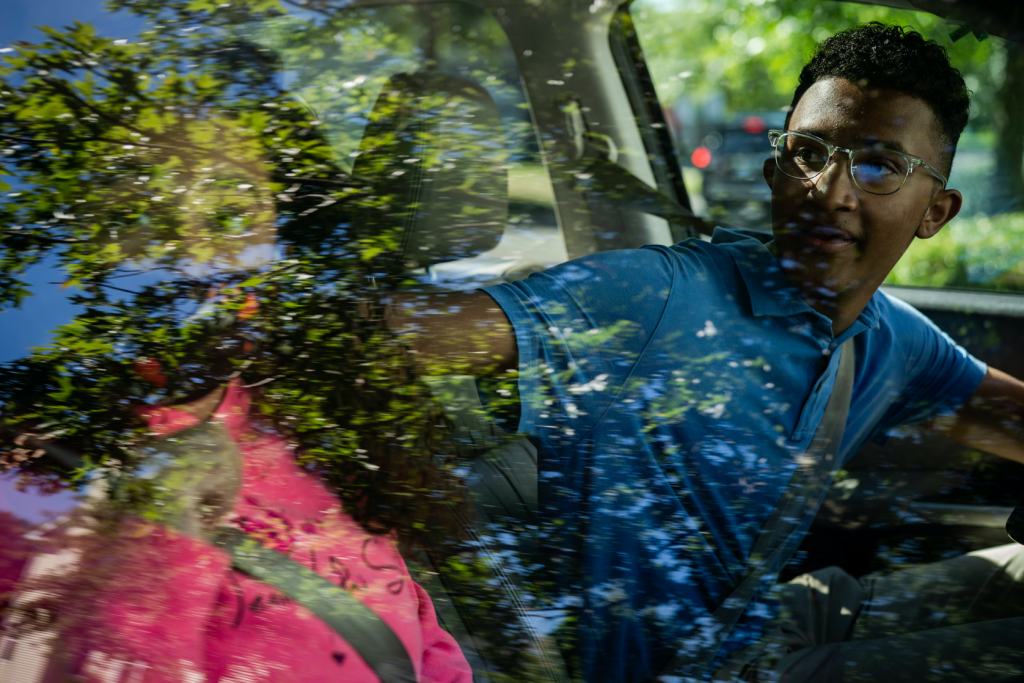
“Thanks, Mom,” he replied, extending a fist to bump against hers.
In the car, headed into the lush Connecticut countryside, Nelba played her son’s favorite Michael Jackson song, “Baby Be Mine.” Isaiah, who was driving, rode with her because the school would allow only one parent into the dorms, and that was going to be Jimmy, who could carry more bags.
“You need to call every day, at least do a check-in,” Nelba told him.
“You said text every day,” he replied.
“I want to see your face, so FaceTime, even if it’s for three minutes,” she said. “That should not be a big ask.”
“Yes, Mom,” Isaiah said.
Seven years earlier, to the day, she had posted on Facebook about Isaiah’s return to school after the attack at Sandy Hook.
“Imagine the difficulty in sending your surviving child into a classroom when you lost your baby in a school shooting,” she wrote. “We sent him because we didn’t want him to be afraid.”
Now it was Nelba trying not to be afraid, and so, for most of the drive, mother and son joked, as they often did in times of stress, about silly things: the music she felt too old to listen to and his feigned indifference — “none of my beeswax” — about the fancy meal she and his dad were allegedly going out for after they dropped him off.
Nelba understood that this ride, for him, represented something great. He would get to sit in real classrooms and practice hockey, see his friends and flirt with girls. But, for her, it also offered one last chance to make sure he grasped what was at stake.
“Isaiah, we are really, really taking a big risk letting you go to school,” she said.
“Yes, Mom,” he told her. “I appreciate it.”
“I can’t count on a system. I can’t count on other kids. I can’t count on other parents,” she continued. “I have to count on you, like that, if everything else fails, you will still do the right, smart thing, even if you’re the only one.”
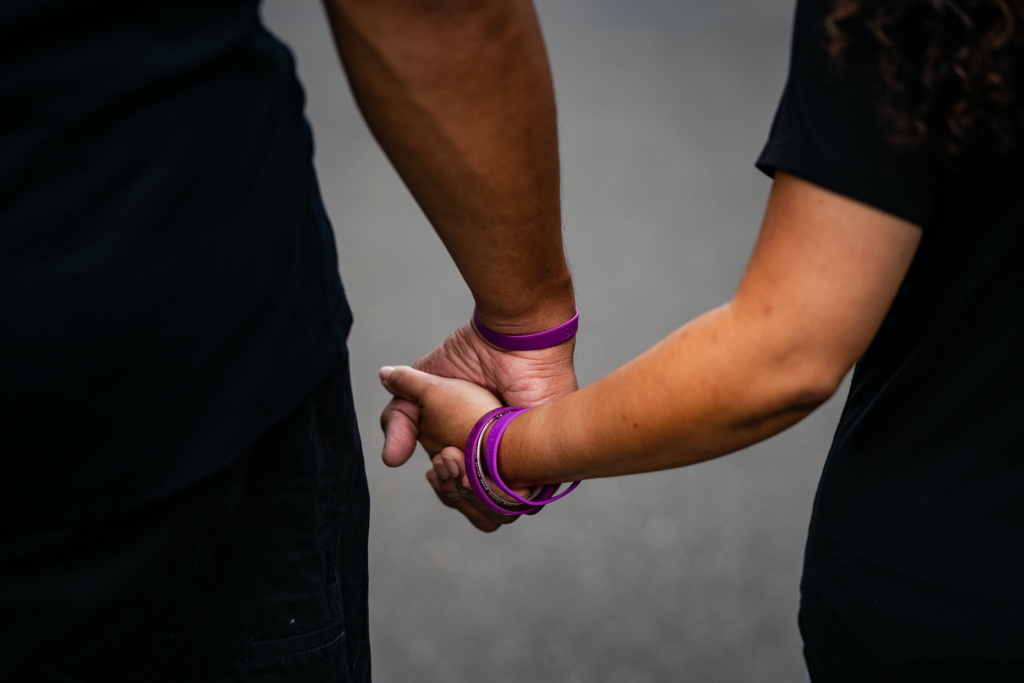
They put on their masks and stopped at a welcome tent where Isaiah was given his keys and name tag and asked to sign an agreement committing to follow the safety plan. Driving behind Jimmy, they continued onto the school’s pristine campus, rounding a shaded drive and parking in front a tall, red-brick building draped in ivy.
As he and Isaiah readied to take up the first load of luggage, Nelba told her son she loved him. This wasn’t goodbye, Jimmy said. Isaiah would have to come back for rest of his stuff.
“Well, I want a hug anyway, just as an insurance one,” she said, as her son put his right arm around her. “No, uh-uh. If you give me that one-handed hug ….”
Afterward, as she waited for them to return, Nelba felt an anguish, a deep one, but not for the reason she had anticipated when that email arrived in July.
“Ana should be here,” Nelba said, and she imagined her daughter saying goodbye to Isaiah, too, or maybe, instead, going with him. She would have been a high school freshman.
Isaiah and Jimmy came back down, and Nelba gave her son one more bottle of Lysol. He unloaded his sticks, and just as he started to pick up his hockey bag, his dad interrupted.
“Give your mom another hug,” Jimmy said.
“Is this the last one?” Nelba asked.
“Last one,” Jimmy said.
She took a quick breath and a half-step back, extending her hands out wide. This time, Isaiah put both arms around her.
“I want you to squeeze,” she said.
“I am.”
“Nope. More.”
“Okay,” he said, smiling. “Bye”
“Bye,” Nelba said.
She let go.
Isaiah picked up his bag and hugged his dad, then off he went, down a long stone sidewalk toward his dorm. Jimmy pointed his phone to take a photo, and Nelba stood beside him, watching, until their surviving child reached the end of the path, opened the double doors and disappeared.

